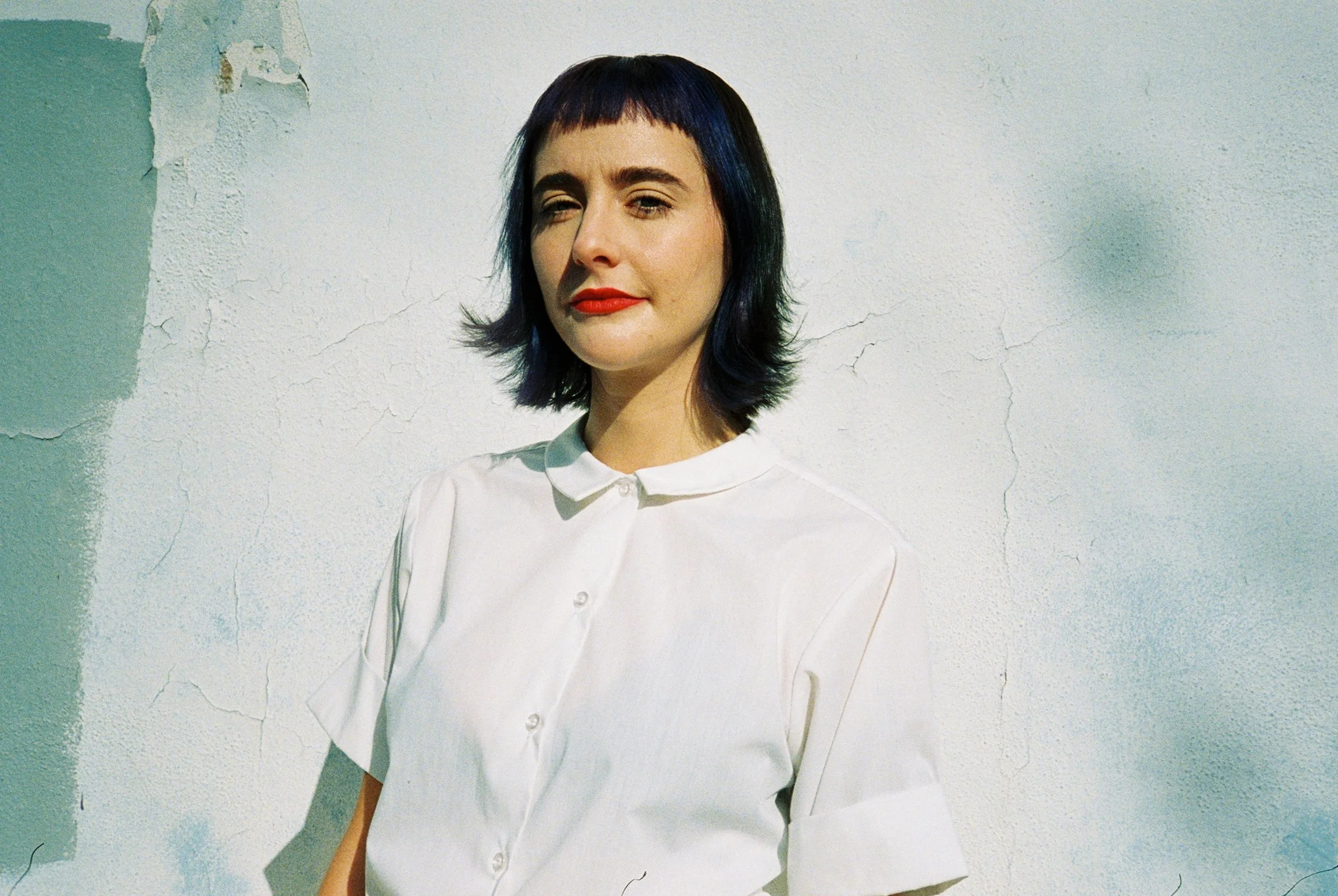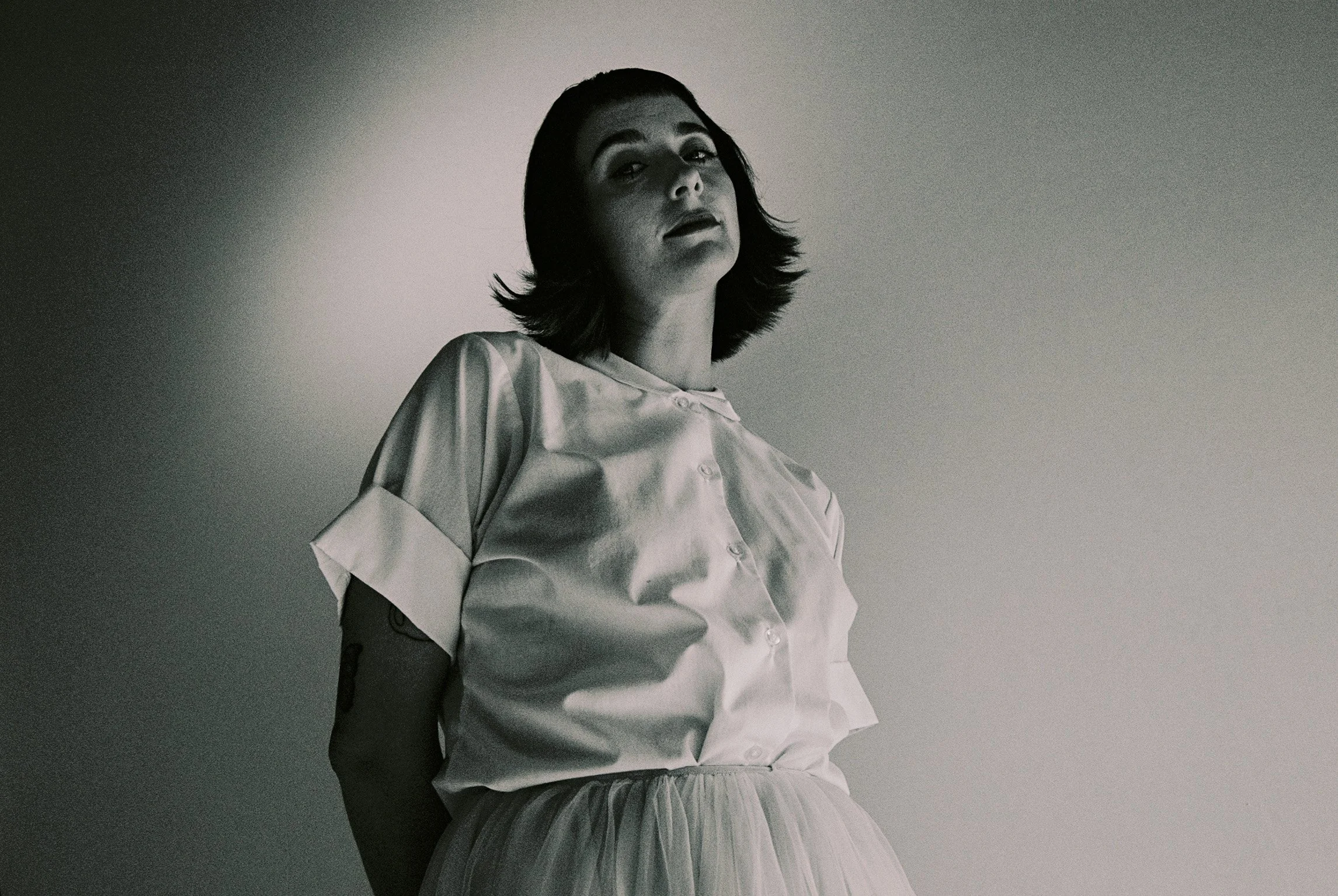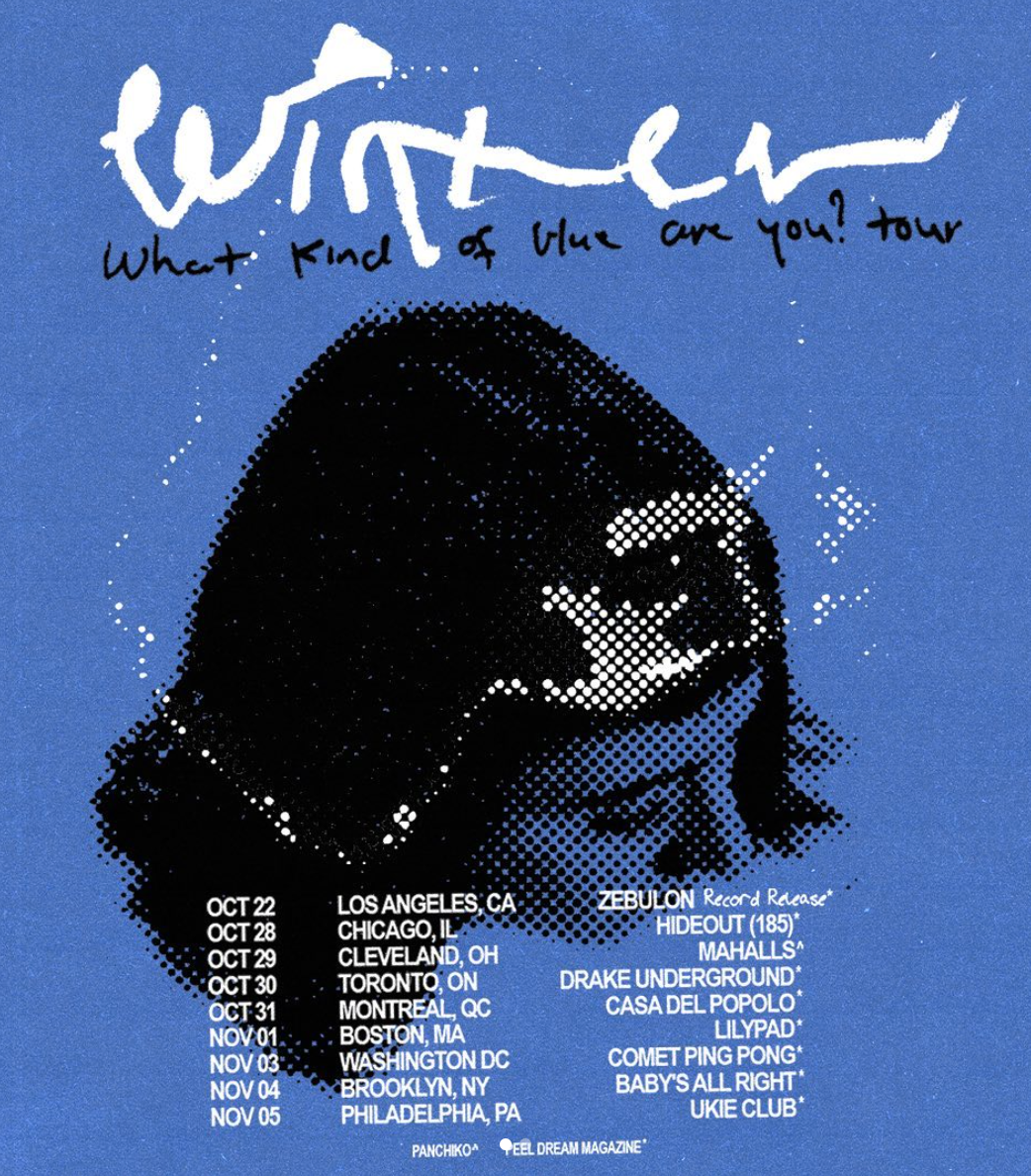Written by: Oliver Heffron
Winter is an ascending, unique talent within the indie dream pop/shoegaze scene. Her sophomore album, What Kind of Blue Are You?, released today via Bar/None Records, paints a saturated, sentimental, and beautiful world of bittersweet, snow-covered melancholy through its tactile feel and dynamic songwriting. Fuzzy guitar riffs, dusty drum machine rhythms, and tape-loop flourishes create a visceral soundscape in which Winter’s vulnerable songwriting warms and breaks your heart.
What Kind of Blue Are You? incredibly communicates the essence of its production and Winter’s background. It reaches into the wiring of sentimentality and exudes bittersweet nostalgia, all while reflecting a blue world unique to Winter. It’s a reminder that the most relatable music is often the kind that’s most unique to the creator, as it's easier to connect with someone sharing something personal than someone who's making small talk.
Winter, aka Samira Winter, sat down with Nuance via zoom to talk about her new album, her analog recording process, and her kind of blue:
Photo Credit: Athena Merry
Born to a Brazilian mother and American father, Samira Winter was born and raised in Curitiba before moving to Boston for college. Her mother filled her childhood home with the melodies of MPB (música popular Brasileira), while her father introduced her to the rugged sounds of American punk. In the last days of her senior year in Boston, Samira started making music under the name Winter, eventually moving to LA to pursue her solo career. Her first release through Bar/None Records, Endless Space (Between You & I), established her voice within with its dreamy reverberations and ethereal glow.
Recorded at LA’s Studio 22 during the height of the 2020 pandemic, What Kind of Blue Are You? was pieced together with patience, as Winter and trusted longtime producer JuJu Ashworth (brother of SASAMI, who features on “good”) could only spend limited sessions together due to fears of the virus:
“So the whole record was written and recorded during 2020 and it was sort of bit by bit. So I would write a couple songs, and because of COVID we were really paranoid about meeting up, so we would just like meet up once a month and get tested before and just work on two songs over like three or four days in the studio.”
Despite the time limitations, Winter and Juju found inspiration in their analog equipment, as Winter remembers the process of analog recording as forcing them to focus on the most critical aspects of the tracks instead of their minute details:
“I would come in with the demo, and then start out with the drum machine patterns and sort of structure the whole song around that like on the Octatrack. It was all on tape. So I feel like there were a lot of physical, gear limitations that made it so we had to approach everything in that simple way. So, there wasn’t like, ‘oh, we can edit something and we can like, add a plugin or like add this,’ it was kind of analog in that sense; the actual recording process. So we really would just finish a track whenever we met up. We would knock it out before moving on to anything else.”
Surrounded by the ominous, cold world of the lockdown, Winter remembers a particular week that Spring in which a change in weather unlocked a source of inspiration for the album:
“I had this week. There was this week of like non stop rain in LA at the end of March, which felt so apocalyptic. Because it was right when the pandemic hit, I wrote like three songs in a row. I wrote “crimson enclosure” in full, and I just felt like there was just this outpouring of emotion. I was just feeling really raw and like, distraught. I think the rain too, it just got me to this state of mind where I was sort of channeling and just like, feeling very raw.”
Looking back, Winter recognizes how the album contains the unique, surreal energy of that time, especially on collaborative tracks like “atonement:” “I feel like there was something in the air that year like during 2020 where, because everyone was just like in the same situation. We had to kind of come up with, like, collaborative ideas that were sort of unconventional and approach things in a new way.”
The standout single, “atonement,” features Hatchie, the band who Winter both performs with and opens for on tour. She explains how the track’s analog, hands-on recording process produced its visceral, tactile sound:
“I basically recorded a demo of that track without any vocals and without bass and I just kind of laid it out and did that guitar. I was messing around with tuning, recording myself and detuning my guitar. So that’s kind of that sound in the beginning but yeah, and then I sent it over, and we kind of took it from there like they put some vocals on and Harriet added bass and then it was just kind of back and forth.So once we had kind of like, written all the parts together. I took it to Juju and I kind of like ran through all of like our setup that we like our tape machine and like just like finalized like the final drums and I recorded final vocals and just added some cool like, extra whammy guitars.”
Reflecting on the album’s production, Winter identifies its utilization of tape-recording equipment and its imperfect mix of feedback and fuzz as core to the album’s excitement, and something she was excited to share:
“I love the tapey feel. This is my first time really having a record that’s very tapey like that. I love feedback. I love noise. I love fuzz. And so I think we did a really good job of having really noisy feedback moments. Because it was just a really fun part of the process; to record Feedback Guitar is probably one of my favorite things to do. So it was nice to get super fuzzy like that and have like that noise and like distortion.”
Some of Winter’s favorite moments on the album are when flourishes of tape-machine spontaneity appear in the mix, as she describes her equipment seemed to come alive: “There was a really cool thing that would happen while we were recording where sometimes like the tape machine would really like come alive and sort of create like all these like glitches on vocals and little transitions, like reverse vocals.”
Delivering her most personal and poignant songwriting yet, What Kind of Blue Are You? shades in various emotions within the same musical frame. For example, she explains that the song “lose you” was about a friend who experienced sexual abuse, as the track describes the pain of caring for a friend in a toxic relationship. Other moments, like the title track “kind of blue,” offer lighter moments that contemplate ideas like starting anew and self-ownership.
Overall, Winter sees the albums’ production and her personal songwriting as reflecting the picturesque landscape of where her musical journey began:
“I think that there are moments where, as a whole record, it feels very personal to me. And I think there’s something about the way it sounds. It just is very like the type of record you just want to put on headphones. To me it’s very East Coast. So I think the perfect scenery for this record is walking around the fall or the Winter on the East Coast.”
Photo Credit: Athena Merry
She describes the album as feeling like a joyful return to the core of Winter’s sound: “But yeah, it’s just like, very full circle to me this whole album because in a way I feel like I’m the full circle reconnecting with my first blue album Supreme Blue Dream, and my whole vision of Winter. To me, this is very much honing in the essence of Winter. And just like sonically and like just spirit wise like when I started Winter I was so inspired by like, Twee and like Sarah Records. And so I think this album really comes back to that core like a winter and it feels really nice.”
With a title like What Kind of Blue Are You?, I asked Winter what the color meant to her and what the question poses to the audience:
“I love that. the title is a question, and I love the idea that everyone can kind of have their own relationship with that question and like what they think it means. But I guess to me, this album came about, and a lot of the songs were written after just feeling a lot of, I call it like my ‘shadow girl,’ my persona ‘Juliet Blue.’ Just coming from a very vulnerable, raw state of sorrow and anger and, and then some of the songs are really about starting fresh and, you know, shedding skin.
But I guess it’s sort of like, ‘what kind of blue you?’ could mean many things, but it can be bittersweet sadness. Beauty that I think has guided me all throughout Winter. It’s that nostalgia that when you’re leaving your hometown, and it’s like it’s just, I think, to me, blue is bittersweet; it’s this sadness with this beautiful essence. I think it’s what’s guided me this whole time, and I guess, in a way, I’m asking myself that too.”
Going forward, Winter is excited to share the album live on her tour. Additionally, she describes how it felt good to share her darker, shadow self with her audience on the record and unapologetically lean into her sound: “It feels really good to really embrace my darker sides and just really unapologetically be really shoegaze. I'm honestly really stoked to just have it out in the world. It's a very sincere body of work.”
If you’re looking to catch Winter live, check out her tour dates here.
Photo Credit: Athena Merry
Photo Courtesy of Winter





